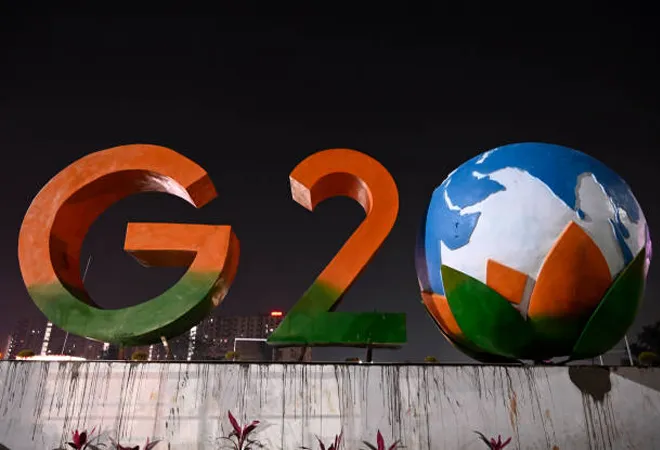-
CENTRES
Progammes & Centres
Location
India is increasingly serving as a model for countries worldwide by demonstrating how economic development and environmental conservation can be complementary.

India now ranks fourth in the world for overall installed renewable energy capacity, having the world’s largest renewable energy expansion program of 175 GW till 2022.The G-20 theme for India’s presidency in 2023 is “Vasudhaiva Kutumbakam,” or “One Earth, One Family, One Future,” which highlights the importance of adopting ecologically responsible and mindful choices, both in individual lifestyles and national development. Through this, India aims to pave the way for a more sustainable, cleaner, greener, and healthier future. India also advocates for urgent action to reduce global carbon emissions and accelerate the transition to cleaner energy sources, alongside stressing upon the significance of “Common but Differentiated Responsibility” in addressing climate change. Under its presidency, India has launched the Amrit Kaal initiative, which aims to create a shared global future through the promotion of environmentally conscious practices and sustainable living, as part of the Lifestyle for Environment (LiFE) movement. India’s G-20 priorities include green development and climate finance, with a focus on promoting sustainable practices through the LiFE movement. India also aims to accelerate progress on the 2030 Agenda for Sustainable Development, with a particular focus on addressing the impact of COVID-19. India joined the G-20 in 1998 when it was still a group of finance ministers and central bank governors. Since then, India has been actively involved in shaping the G-20’s agenda and advancing its interests on the world stage. India has been a strong advocate for sustainable development, poverty alleviation, and climate change issues. India has great potential to collaborate with G-20 nations on clean energy transition measures. As the G-20 president, India can cultivate global partnerships to accelerate the development and implementation of clean energy technologies while ensuring energy access for low-income countries.
The G-20 Energy Transitions Working Group emphasizes the need for collective efforts from all member nations to achieve a cleaner and more sustainable energy future, with policies that promote equal access to clean technologies.During India’s G-20 presidency, cooperation in ensuring equal access to affordable energy and a steady supply of fossil fuels is a potential avenue for collaboration. The G-20 Energy Transitions Working Group emphasizes the need for collective efforts from all member nations to achieve a cleaner and more sustainable energy future, with policies that promote equal access to clean technologies. To step up its efforts to engage countries to push toward clean energy fuels, India, Brazil, and the United States have planned to launch a Global Biofuel Alliance to promote sustainable biofuel use in transportation and trade, provide technical assistance to national biofuel programs worldwide, and share policy lessons. The official launch is expected to occur before the G-20 leaders’ summit in September as noted by Union Petroleum Minister Hardeep Singh Puri. Furthermore, the International Solar Alliance (ISA), a coalition of 121 countries, can aid India in promoting solar energy globally, while collaborating with G-20 countries to encourage solar energy adoption and investment in solar projects. India can leverage the ISA to secure financial support for its climate change initiatives, such as promoting renewable energy and reducing carbon emissions. Thus, India’s leadership role in the G-20 presents a unique opportunity to promote the faster adoption of clean energy resources among member nations. By facilitating technology transfers, promoting green development and climate finance, India can bridge the gap between the Global South and North and accelerate progress towards the 2030 Agenda for Sustainable Development. This win-win situation would benefit all member countries.
The views expressed above belong to the author(s). ORF research and analyses now available on Telegram! Click here to access our curated content — blogs, longforms and interviews.

Manish Vaid is a Junior Fellow at ORF. His research focuses on energy issues, geopolitics, crossborder energy and regional trade (including FTAs), climate change, migration, ...
Read More +